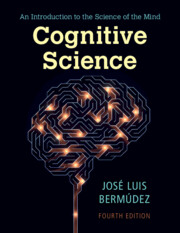An Introduction to the Philosophy of Psychology
Psychology aims to give us a scientific account of how the mind works. But what does it mean to have a science of the mental, and what sort of picture of the mind emerges from our best psychological theories? This book addresses these philosophical puzzles in a way that is accessible to readers with little or no background in psychology or neuroscience. Using clear and detailed case studies and drawing on up-to-date empirical research, it examines perception and action, the link between attention and consciousness, the modularity of mind, how we understand other minds, and the influence of language on thought, as well as the relationship between mind, brain, body, and world. The result is an integrated and comprehensive overview of much of the architecture of the mind, which will be valuable for both students and specialists in philosophy, psychology, and cognitive science.
- Situates the philosophy of psychology firmly within the philosophy of science
- Easily accessible to readers without prior knowledge of psychology or neuroscience
- Each chapter stands alone as an independent topic for study and can be consulted in any order
Product details
January 2015Paperback
9780521740203
328 pages
248 × 174 × 18 mm
0.59kg
3 b/w illus.
Available
Table of Contents
- 1. What psychology is
- 2. Autonomy and reduction in psychology
- 3. Modularity and cognitive architecture
- 4. Nativism, development, and change
- 5. Beyond the brain and body
- 6. Perception and action
- 7. Attention and consciousness
- 8. The social mind
- 9. Thought and language.





